Filter by
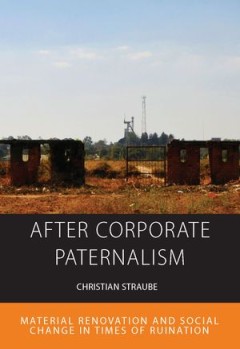
After Corporate Paternalism : Material Renovation and Social Change in the Ti…
In this ethnographic study of post-paternalist ruination and renovation, Christian Straube explores social change at the intersection of material decay and social disconnection in the former mine township Mpatamatu of Luanshya, one of the oldest mining towns on the Zambian Copperbelt. Touching on topics including industrial history, colonial town planning, social control and materiality, gender…
- Edition
- -
- ISBN/ISSN
- 9781800734159
- Collation
- -
- Series Title
- -
- Call Number
- -
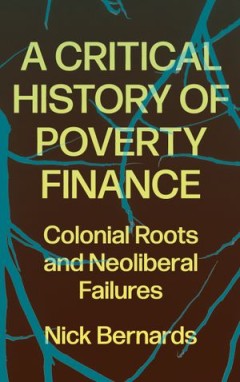
A Critical History of Poverty Finance: Colonial Roots and Neoliberal Failures
Beyond Money shows that, by organising around post-money versions of the future, activists have a hope of creating a world that embodies their radical values and visions.
- Edition
- -
- ISBN/ISSN
- 9780745344867
- Collation
- -
- Series Title
- -
- Call Number
- 337 BER c
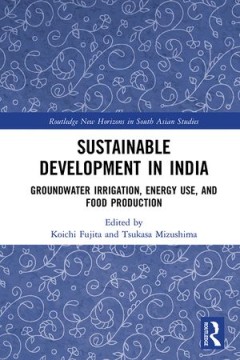
Sustainable Development in India: Groundwater Irrigation, Energy Use, and Foo…
This book explores and interrogates the food–water–energy nexus, arguably the most crucial factor in sustaining India’s economic development. The book sheds light on different experiences faced in states across India, including the consequences of electricity tariff reforms and related policies on irrigated agriculture. Part 1 focuses on the historical development of agriculture and socia…
- Edition
- -
- ISBN/ISSN
- 9781003036074
- Collation
- -
- Series Title
- -
- Call Number
- 305.8 SUS s
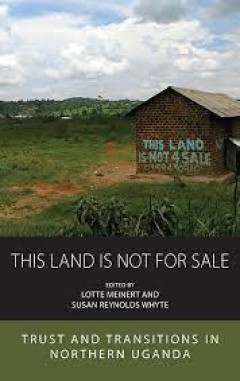
This Land Is Not For Sale Trust and Transitions in Northern Uganda
Although violent conflict has declined in northern Uganda, tensions and mistrust concerning land have increased. Residents try to deal with acquisitions by investors and exclusions from forests and wildlife reserves. Land wrangles among neighbours and relatives are widespread. The growing commodification of land challenges ideals of entrustment for future generations. Using extended case studie…
- Edition
- -
- ISBN/ISSN
- 9781805390473
- Collation
- -
- Series Title
- -
- Call Number
- -
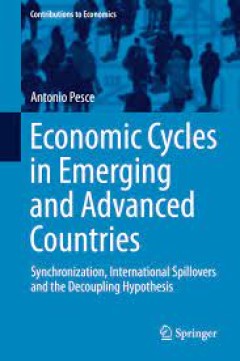
Economic Cycles in Emerging and Advanced Countries
This book contributes to the debate on the decoupling of emerging economies from the advanced economies with a new, empirical investigation approach. Taking counterfactual experiments performed using a time-varying panel VAR model, the author argues that over the last thirty years, emerging economies have become less vulnerable to shocks spreading from advanced economies. This resilience to ext…
- Edition
- 1
- ISBN/ISSN
- 978-3-319-17084-8
- Collation
- -
- Series Title
- -
- Call Number
- XVIII, 173
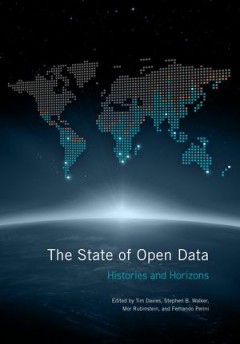
The State of Open Data: Histories and Horizons
It’s been ten years since open data first broke onto the global stage. Over the past decade, thousands of programmes and projects around the world have worked to open data and use it to address a myriad of social and economic challenges. Meanwhile, issues related to data rights and privacy have moved to the centre of public and political discourse. As the open data movement enters a new phase…
- Edition
- -
- ISBN/ISSN
- 9781552506127
- Collation
- -
- Series Title
- -
- Call Number
- 005.642 STA
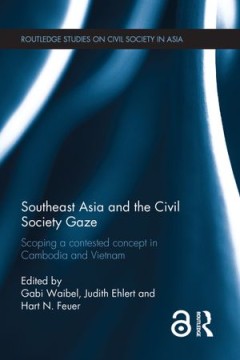
Southeast Asia and the Civil Society Gaze: Scoping a Contested Concept in Cam…
As developing countries with recent histories of isolation and extreme poverty, followed by restoration and reform, both Cambodia and Vietnam have seen new opportunities and demands for non-state actors to engage in and manage the effects of rapid socio-economic transformation. This book examines how in both countries, civil society actors and the state manage their relationship to one another …
- Edition
- -
- ISBN/ISSN
- 9781134634293
- Collation
- -
- Series Title
- -
- Call Number
- 320.17 SOU s

Civil Society and the State in Democratic East Asia Between Entanglement and…
This volume focuses on the new and diversifying interactions between civil society and the state in contemporary East Asia by including cases of entanglement and contention in the three fully consolidated democracies in the area: Japan, South Korea and Taiwan. The book argues that all three countries have reached a new era of post high-growth and mature democracy, leading to new social anxietie…
- Edition
- -
- ISBN/ISSN
- 9789048551613
- Collation
- -
- Series Title
- -
- Call Number
- -

A Critical History of Poverty Finance : Colonial Roots and Neoliberal Failures
'The definitive account of the history of poverty finance' - Susanne Soederberg Finance, mobile and digital technologies - or 'fintech' - are being heralded in the world of development by the likes of the IMF and World Bank as a silver bullet in the fight against poverty. But should we believe the hype? A Critical History of Poverty Finance demonstrates how newfangled 'digital financial …
- Edition
- -
- ISBN/ISSN
- 9780745344867
- Collation
- -
- Series Title
- -
- Call Number
- -
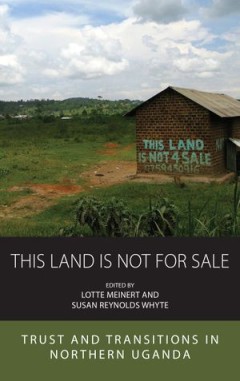
This Land Is Not For Sale : Trust and Transitions in Northern Uganda
Although violent conflict has declined in northern Uganda, tensions and mistrust concerning land have increased. Residents try to deal with acquisitions by investors and exclusions from forests and wildlife reserves. Land wrangles among neighbours and relatives are widespread. The growing commodification of land challenges ideals of entrustment for future generations. Using extended case studie…
- Edition
- -
- ISBN/ISSN
- 9781805390473
- Collation
- -
- Series Title
- -
- Call Number
- -
 Computer Science, Information & General Works
Computer Science, Information & General Works  Philosophy & Psychology
Philosophy & Psychology  Religion
Religion  Social Sciences
Social Sciences  Language
Language  Pure Science
Pure Science  Applied Sciences
Applied Sciences  Art & Recreation
Art & Recreation  Literature
Literature  History & Geography
History & Geography